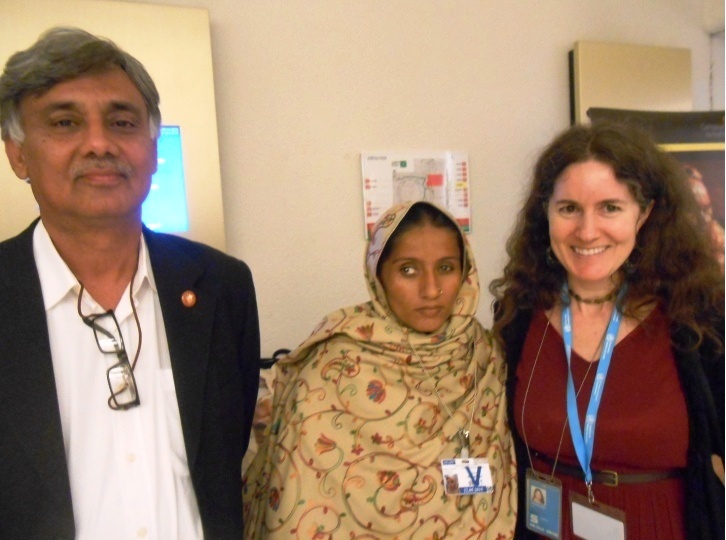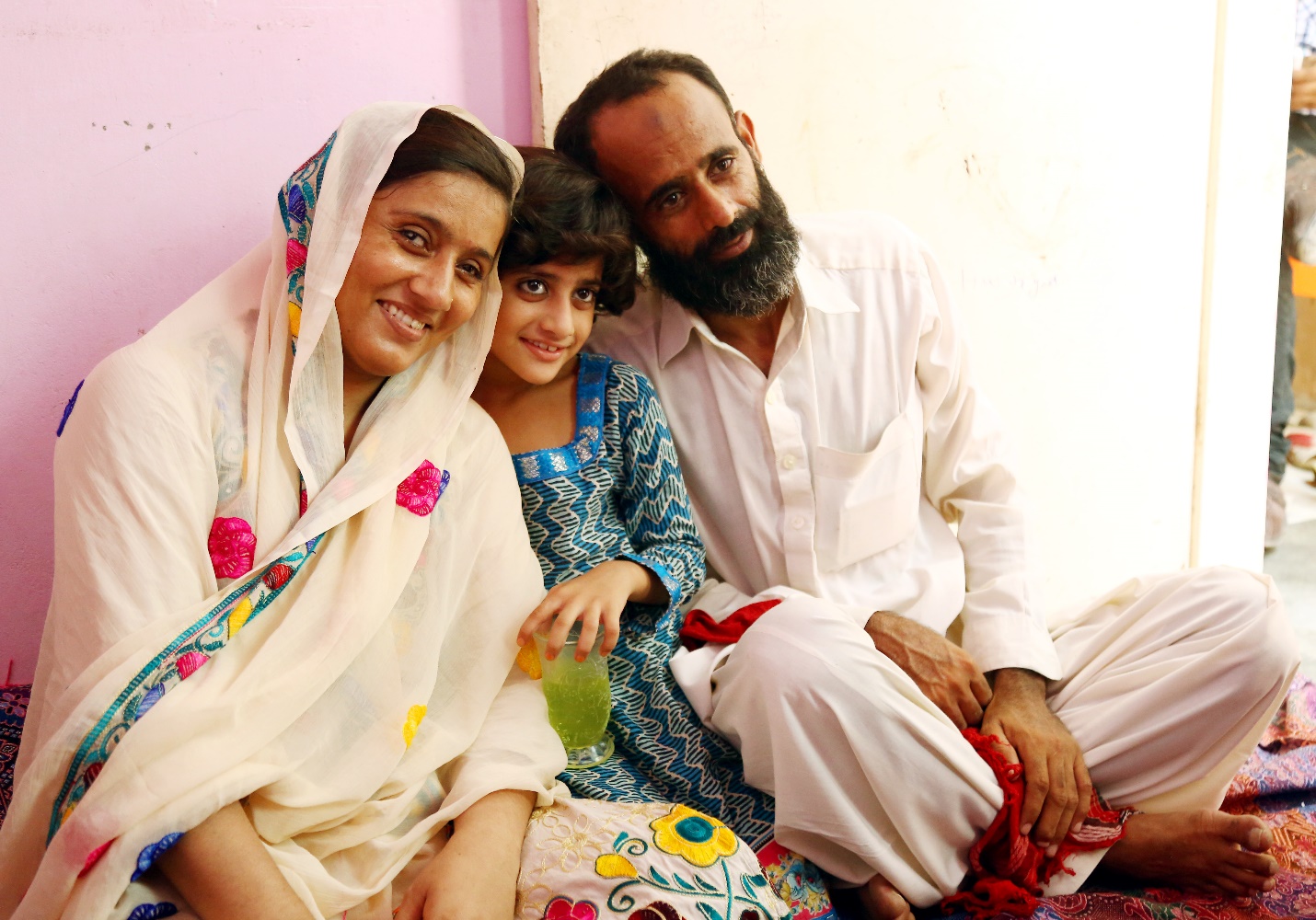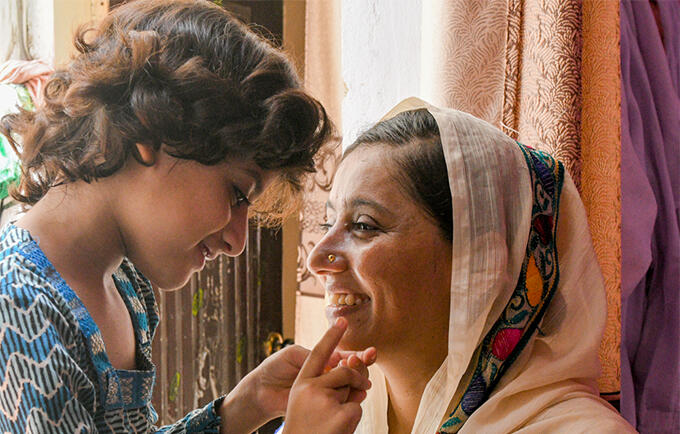Razia Shamshad, Fistula Survivor with her daughter in Karachi, Pakistan. PHOTO: UNFPA Pakistan
Razia Shamshad, known to many as the Fistula Survivor, has a story to tell: “Helping women suffering from fistula is my mission in life. No woman deserves to live in misery, especially when it is treatable.”
"I was born with poor sight. Living in poverty, the idea of me going to school was never entertained."
Hailing from small village in southern Punjab, Razia had little say in the decision of her marriage. Following the strict family tradition, she was married soon after she reached puberty at thirteen. Razia was expecting her first baby within a few weeks of her wedding. When she was six months pregnant, her husband tragically died in a road accident. Devastated, alone and scared, Razia looked forward to holding her baby in her arms.
Not able to afford proper medical care, Razia delivered her baby after four days of excruciating labour, with a Dai (Traditional Birth Attendant – TBA) by her side. The baby had to be pulled from her womb and serious damage was done to Razia’s body causing obstetric fistula - a hole between the birth canal and bladder and/or rectum, which it is caused by prolonged, obstructed labour without access to timely, high-quality medical treatment. It leaves women leaking urine, faeces or both, and often leads to chronic medical problems, depression, social isolation and deepening poverty.
"I was alone with my elderly father-in-law. People would either avoid me or just make fun of me. I never felt clean." Determined to make her life better, Razia set-off to Karachi to the Koohi Goth Women’s Hospital that specializes in treating fistula and other conditions related to reproductive health.
 Dr. Sjjad Ahmed and Erin Anastasi, Coordinator, Campaign to End Fistula UNFPA with Ms. Razia Shamshad. PHOTO: UNFPA Pakistan
Dr. Sjjad Ahmed and Erin Anastasi, Coordinator, Campaign to End Fistula UNFPA with Ms. Razia Shamshad. PHOTO: UNFPA Pakistan
“With the support of UNFPA, we were able to perform a series of operations to treat Razia before she was ready to lead a normal life but her determination was exceptional. She was resilient and strong and was able to pull through the difficult process successfully.” says Dr. Sajjad Ahmed, who was trained by UNFPA to perform fistula repair surgery.
Soon after her procedures Razia met her current husband and adopted a little girl not expecting to ever have more children of her own. However, Razia surprised herself and her doctors by conceiving again. The pregnancy was normal and through regular prenatal care she was able to deliver a healthy baby girl through a C-section.

Razia Shamshad with her family in Karachi. PHOTO: UNFPA Pakistan
Today, Razia lives with her family in Karachi and works as a volunteer at the Koohi Goth Hospital helping with new patients and assisting in their recovery after the surgery.
“I believe life experiences shape us into the people we need to become. My experiences have given me the courage and drive to help women who have lost all hope because of fistula.” Razia told UNFPA about her work at the hospital. She has proved to be a source of encouragement to these women, "Never give up hope," she tells them.
UNFPA leads and coordinates the “Campaign to End Fistula.” In 2019, as UNFPA celebrates its 50th birthday, we can also celebrate that since 2003 over 105,000 surgical repairs have directly been supported by UNFPA and helped transform the lives of countless women and girls. The Campaign in more than 55 countries in Africa, Asia, the Middle East and Latin America. More information can be found online at www.endfistula.org


